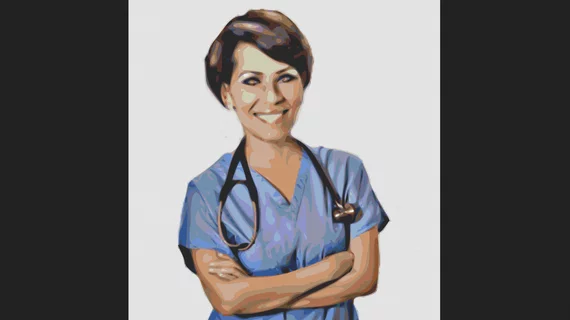Large swath of healthcare workforce likely to keep working past age 67
Almost half of individuals employed in healthcare expect to keep their noses to the grindstone into their late 60s or beyond, according to survey results released Oct. 21 by the Manhattan-based TIAA Institute.
Those steeling themselves for postretirement-age labor include registered nurses, physicians and surgeons, other medical professionals, office and administrative staff, and non-medical professionals.
That’s pretty much everyone on the provider side of the industry.
TIAA Institute arrived at the findings after drawing responses from just over 1,200 individuals this past May and June. Analysts weighted the responses based on data from the U.S. Bureau of Labor Statistics.
There’s probably a lot of overlap between respondents steeling themselves for an extended time in the trenches (45%), those whose overall financial outlook has darkened (46%) and those feeling less financially confident (38%).
The shaken sense of security almost certainly traces to the COVID crisis, as TIAA suggests in a news release.
The survey report further shows:
- Around 75% of responding healthcare workers had emergency savings prior to COVID-19, and a third of these have used at least some of it.
- 35% are not confident about having enough money to take care of medical expenses during retirement, and 62% are not confident about paying for long-term care if needed.
- 29% report feeling less confident that they are saving an adequate amount for retirement, and 26% say they are less confident that they are investing their retirement savings appropriately.
- 27% of those whose financial condition has worsened expect further deterioration over the next year.
“The impact of COVID-19 on healthcare institutions and their workforce has been extreme,” says Paul Yakoboski, TIAA Institute senior economist and author of the report. “Some segments have experienced major increases in work hours, while others have experienced furloughs, layoffs and salary reductions. While much attention has been paid to the mental and emotional toll on our frontline medical workers, we must also pay attention to the financial toll on this obviously critical industry and its employees.”
The age at which individuals may draw full Social Security retirement benefits has been stepping up from 65 in phases and will hit 67 in 2027.
Click here for the full report and here for its executive summary.

